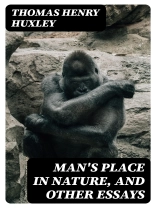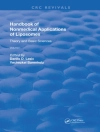In ’Man’s Place in Nature, and Other Essays, ’ Thomas Henry Huxley intricately examines humanity’s biological and evolutionary significance through a series of compelling essays. Huxley employs a clear, yet sophisticated style, balancing scientific rigor with engaging prose that appeals to both researchers and lay readers. The essays situate human existence within the broader context of natural history and evolution, incorporating comparative anatomy and paleontology to elucidate our relationships with other species. This work is significant not only for its scientific insights but also for its role in the cultural debates surrounding Darwinism in the late 19th century, offering a critical perspective on the implications of evolution for human identity and morality. Huxley, known as ’Darwin’s Bulldog’ for his staunch advocacy of evolutionary theory, drew upon his extensive background in biology to craft this impactful work. His experiences as a naturalist, coupled with his involvement in educational reform and public discourse on science, significantly influenced his views on human evolution and its philosophical ramifications. Huxley’s commitment to empirical evidence and rational thought reflects the intellectual fervor of his era, as he sought to bridge the gap between science and societal understanding. I highly recommend ’Man’s Place in Nature, and Other Essays’ for anyone interested in the intersection of science, philosophy, and human thought. Huxley’s thought-provoking arguments not only illuminate our origins but also challenge readers to contemplate our role in the natural world. This book promises to enrich your understanding of humanity’s place in the tapestry of life and is an essential read for both current and future discussions on evolution.
Om författaren
Thomas Henry Huxley, an eminent English biologist, was born on May 4, 1825, and became one of the most influential scientists of the 19th century. As a staunch advocate of Charles Darwin’s theory of evolution, Huxley earned the nickname ’Darwin’s Bulldog’ for his tenacity in defending evolutionary biology against religious and scientific opposition. He significantly contributed to the acceptance of the concept of natural selection with his persuasive public speeches and prolific writings. Notably, his 1863 work, ’Man’s Place in Nature, and Other Essays, ’ represents a cornerstone of comparative anatomy and paleontology, wherein Huxley elucidates the similarities between humans and apes, providing evidence for human evolution. Huxley’s prose is marked by clarity and cogency, qualities he deemed vital for the conveyance of scientific ideas to a lay audience. His literary style was both rigorous and accessible, reflecting his commitment to education and public understanding of science. Huxley was instrumental in establishing modern scientific education in Britain and was a founder of the influential X-Club, which aimed to promote ’scientifically based naturalistic thinking.’ Through his essays, lectures, and educational reforms, Huxley emerged as a leading member of the intellectual elite and a key architect of the scientific landscape of his time. He passed away on June 29, 1895, leaving behind a legacy as a preeminent thinker, educator, and proponent of scientific progress.












